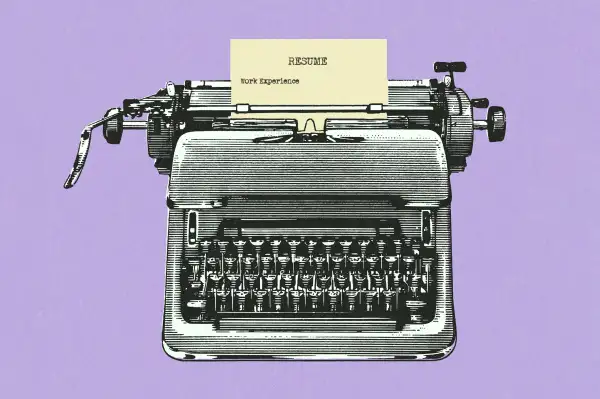How to Reframe Your Resume and Get a New Job During Coronavirus

This is a stressful time to be an American employee. Many of us are losing our jobs, getting our hours cut, and living with the fear of having our livelihoods stripped away at any moment.
As grueling of an experience as this is, there are a number of things you can—and should—do to protect against uncertainty. On the career front, that includes updating your resume. Immediately.
Even if you’re gainfully employed, “You need to plan ahead,” says Dana Leavy-Detrick, managing director of Brooklyn Resume Studio. “Jobs can be lost very quickly, and when you’re in a state of panic you can’t be as effective.”
Money has offered up a lot of (good!) resume advice in the past, which is a great place to start if you need a free resume template or ideas on what to put on it. But in a time of social distancing, here is some more specialized advice.
Prove that you’re essential
Many employees have had to adapt to new situations on the fly, with rapidly changing directions and longer hours. Is this anyone’s ideal situation? No. But it IS something future employers will look at favorably.
Prove that you work productively from home by setting daily measurable goals for yourself now, says Leavy-Detrick. Then, when you need to showcase what you've accomplished, you have your own measurements to look back on and cite.
If you helped prepare your workplace for coronavirus protocols or continued to head to your job as a grocery clerk amidst chaos, you have extra bragging rights. Frame it on your resume in a positive light by saying you "Continually delivered results with minimal direction or supervision."
Reframe your skills to meet different demands
Reflect on the work you’ve done and how the skills you’ve acquired can apply to other industries and roles.
Just because most of your experience is in retail doesn’t mean you can’t apply for a desk job in sales (or vice versa) — but you need to prove that the transition will be smooth sailing.
New experience you've gained amid Coronavirus panic can come into play here, too: Managing a stock room or figuring out staff schedules with a downsized team can be turned into hard resume skills like ‘digital project management’ or ‘remote workflow oversight.’
“Transferable skills are always the key to bridging a gap,” Leavy-Detrick says.
Pick up some new knowledge
There are loads of free online resources for learning new subjects and applicable job skills. Figure out what skill areas companies seem to be hiring for and take some courses if you can.
“Now is the time to familiarize yourself — no need to be an expert, but be familiar — with different software and industry trends,” says Levy-Detrick.
Want to learn to code? You can take basic interactive HTML lessons for free on Codecademy. Or for some broader programs that will still wow employers, check out Google Skillshop where you can get free certifications in Google Marketing Platform, Google Analytics, and more resume-boosting courses. Another option—if you're interested in more creative pursuits—is to try out the 7 day free trial of Adobe Creative Cloud and familiarize yourself with some of the company's most popular programs, like Photoshop or InDesign.
No matter what industry you're in, now is a great time to learn how to move up in it. Follow CEOs and other industry figures on social media, and search for news about companies you dream of working for. Even having a little inside knowledge will give you a leg up in the interview process.
Get digital
Do a self-check on how your online presence looks, who you follow on social media, and what needs to be updated. Yes, that includes LinkedIn—especially if your career information is out of date or mostly empty.
Now is an especially great time to be active on the networking site, since people are spending more time than usual online. Don’t be afraid to reach out to people in an industry you’d like to work in or in positions you want to hold someday to get a better understanding of the role. If you’re polite (not weird) and seem genuinely interested in the work others are doing, you’ll probably get some responses.
“I’ve found that in situations like this, people usually want to help others if they can,” says Leavy-Detrick, “Simply starting a conversation online can really help build your network.”
Make multiple resumes
If spring 2020 was going to be the time you finally made the move into a new career, or launched your dream coffee-shop-jewelry-making boutique, this moment in time must feel like a giant slap in the face.
Obviously, your top priority should be taking care of you and your family’s needs, but there’s no reason to give up on what drives you.
Leavy-Detrick's advice? Create two or three different resume templates tailored to different job titles and levels of expertise.
“Maybe one is for your fall-back jobs, another is a step-up, and another for jobs that are great lateral moves,” she says.
Regardless of whether an open position is a dream job or something that puts food on the table in the meantime, you can cover all of your bases while continuing to work toward a better future. And when an opportunity comes knocking, you’ll be prepared.
